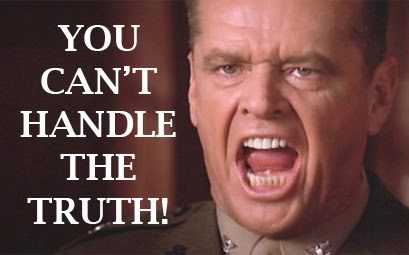Two weeks ago, I presented a new concept to a group of advisers. They hated it and told me as much directly, but more importantly they told me why and I listened. In the end, they were right and I’ve gone back and made some important changes and gained valuable insight from their feedback about my assumptions.
Andrew Phillips’ story is a powerful one for understanding what we learn from brutal honesty.
Andrew played football at Stanford under Jim Harbaugh. During training camp, Andrew’s father was killed in a plane crash. Weeks later he was understandably distracted in practice before a big game and was missing blocks. Coach Harbaugh told him, “Get the guy blocked or get out of the huddle.” He was pulled out for the rest of the series and had to earn his way back to starting that week.
A few years later when searching for a job in Silicon Valley, he was introduced to the legendary CEO coach and icon, Bill Campbell for advice on his career. His call lasted 15 seconds with Bill telling Andrew, “Your resume sucks. Clean it up before we speak again.”
Andrew’s initial reaction to both situations was very defiant, but today he looks back on those experiences with a different perspective and credits both Harbaugh and Campbell for what their brutal honesty taught him.
Read more about Andrew’s takeaways and learnings.
Do you want to know the truth (even if it’s brutally honest)? Or would you rather people tell you what you wanted to hear? Chances are you have already made this choice with friends and colleagues based on how you react to these type of exchanges.
We have two choices when someone is brutal honest:
1. To listen believing that there is something we can learn and improve from
2. To go on the defensive and argue our perspective
If you tend to lean toward #2, it’s important to ask yourself why. The only person you’re hindering is yourself.
Quote of The Week
“Praise makes you feel good, critique makes you better.”
Unknown
Have a great weekend!









